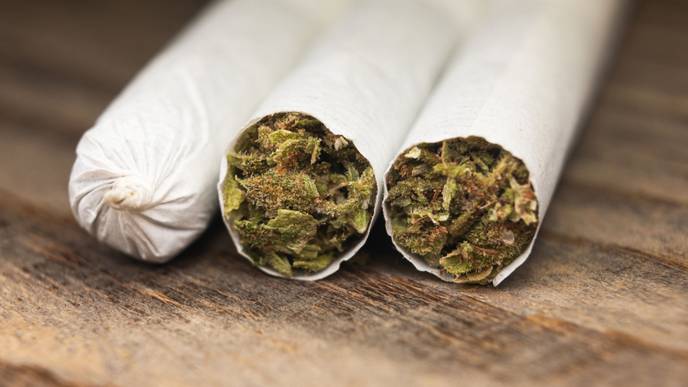ReachMD
Be part of the knowledge.™ER Visits for Children Sickened from Marijuana Surged During the Pandemic

The number of young people consuming toxic levels of marijuana edibles or smoking pot to the point that they require emergency help shot up dramatically during the pandemic, the Centers for Disease Control and Prevention reported Thursday.
The new data are "concerning" to pediatric emergency care doctors like Dr. Caleb Ward at Children's National hospital in Washington, D.C., but they're no surprise.
"It would be an unusual week if we're not seeing a child presenting to our emergency room with side effects from cannabis ingestion," said Ward, who was not involved with the new report.
While older teenagers accounted for the vast majority of cannabis-related ER visits, the most stunning increase was found among children under age 11: a 214% increase, on average, from 2019 to 2022.
As many as 23 states currently have legalized recreational marijuana and 38 allow its medical use.
"Many homes in the United States now have edible cannabis products in them," Ward said. "They see these products that look like candies or brownies, sometimes in cartoon packaging, and they're ingesting them not because they want a cannabis product, but because it looks fun."
CDC researchers analyzed cannabis-related data from 1,671 emergency departments from 2020 through 2022, comparing them to similar visits in 2019.
More younger girls in the ER for marijuana
Overall, 90% of visits were among teens and young adults 15 to 24 years old. Between 2019 and 2022, the average rate of cannabis-related ER visits in this age group rose slightly, by 8%, with the most notable increases just after stay-at-home orders were put in place in the spring of 2020.
This may signify that some teenagers were turning to pot to soothe pandemic-related stressors. And the marijuana products typically used by this age group — weed pens and other vaping devices high in THC — may have contributed to an increase in related illnesses.
"Products with high THC concentration can increase the risk for excess consumption and lead to greater intoxicating effects," the report's authors wrote.
A teenager who has consumed toxic levels of THC may show up at the ER with confusion, vomiting, seizures or difficulty breathing, Ward said.
Younger age groups had more significant increases in marijuana-related ER visits, according to the report. Among children ages 11 to 14, girls had a particularly striking rise:a 111% average increase from 2019 to 2022. The average increase for middle school boys during the same time frame was 24%.
"That data looking at our younger girls is what really saddens me," said Dr. Willough Jenkins, medical director of emergency and consultation liaison psychiatry at Rady Children's Hospital in San Diego.
A separate report from the CDC published in February found record levels of sadness and hopelessness among young teenage girls.
"Our middle school girls are struggling and are using more cannabis than males," said Jenkins, who was not involved with the new report. "So it makes sense that they're going to be the ones coming in, especially in middle school," when teenagers tend to first start using cannabis intentionally.
Marijuana poisoning tripled in children under age 11
The most significant increases, however, were found in children younger than 11. The average number of ER visits from cannabis use in this age group more than tripled, from 20.9 per 10,000 visits in 2019 to 65.6 per 10,000 visits in 2022. That's an increase of 214%.
These exposures, the study authors wrote, are the likely result of accidental poisoning associated with marijuana edibles in packaging that's appealing to children.
It's an issue federal regulators are attempting to address. Earlier this month, the Food and Drug Administration and the Federal Trade Commission sent warning letters to six companies for selling illegal copycat food products containing THC.
"These products can easily be mistaken for traditional foods like chips, cookies, candy, gummies or other snack food items. The FDA is concerned that these products can be accidentally ingested by consumers, including children, or taken in higher doses than intended," regulators wrote.
Ward said marijuana's effects on very young children may be difficult to diagnose. A 2-year-old, for example, may be really sleepy and throwing up, but tests for typical viruses and bacterial infections are normal.
It's only through additional conversations with families that the possibility that the child accidentally consumed a marijuana edible is revealed.
Experts recommend keeping edibles locked and stored out of reach of children, just like other dangerous items.
"As pediatricians, we always encourage families to ask those tough questions before playdates and sleepovers around firearms," Ward said. "I would suggest the same thing should be asked about edibles."
Follow NBC HEALTH on Twitter & Facebook.
Facebook Comments